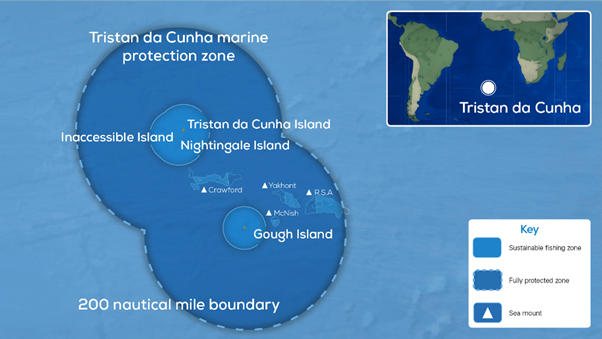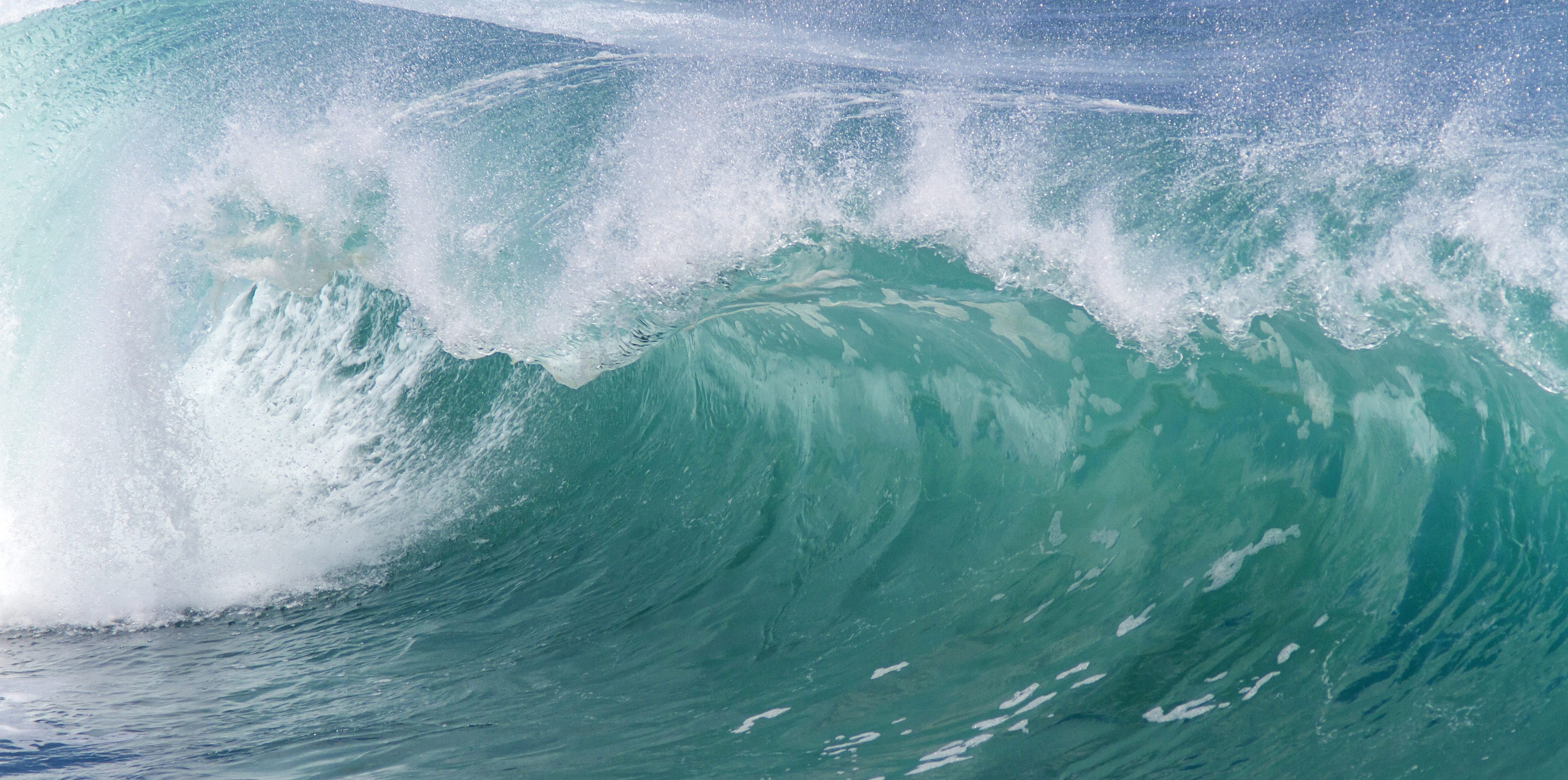Tristan da Cunha: one of the world’s biggest wildlife sanctuaries
 In an excellent example of science, policy and fundraising coming together for a great conservation result, the UK Overseas Territory of Tristan da Cunha has recently declared a significant proportion of its waters as a Marine Protection Zone.
In an excellent example of science, policy and fundraising coming together for a great conservation result, the UK Overseas Territory of Tristan da Cunha has recently declared a significant proportion of its waters as a Marine Protection Zone.
Tristan da Cunha is a UK Overseas Territory in the South Atlantic; an archipelago located 2,400km from the nearest land and one of the most geographically isolated island groups in the world. The most remote inhabited island on Earth is home to around 250 islanders, as well as tens of millions of seabirds including albatross and penguins, plus whales, sharks, dolphins and seals. The waters that surround this remote UK Overseas Territory are some of the richest in the world.
On Friday 13 November 2020, the community of Tristan da Cunha declared that 687,247km2 of its waters will join the UK’s Blue Belt of marine protection, becoming the largest ‘no-take zone’ in the Atlantic and the fourth largest on the planet. This means that no fishing or other extractive activities are permitted across the whole area.
Tristan da Cunha Chief Islander, James Glass, said: “Our life on Tristan da Cunha has always been based around our relationship with the sea, and that continues today. The Tristan community is deeply committed to conservation: on land, we’ve already declared protected status for more than half our territory. But the sea is our vital resource, for our economy and ultimately for our long-term survival. That’s why we’re fully protecting 90% of our waters — and we’re proud that we can play a key role in preserving the health of the oceans. The Blue Belt Programme, RSPB and many others have been valuable partners in helping Tristan da Cunha develop its marine protection strategy.”
Beccy Speight, the RSPB’s chief executive, said: “In 2020 the importance of having nature in our lives has never been clearer. While Tristan da Cunha may be far away in distance it is still close to our hearts and protecting it is still the UK’s responsibility. Closer to home, the crisis facing nature is also huge. So huge that our wellbeing, our economic future, and our very survival depend on the choices we make now about the natural world. We need politicians to emulate the leadership of this small community to help us build the world we all want to live in. We hope today’s fantastic announcement is the first of many more that help revive our world.”
The creation of the Marine Protection Zone is only possible thanks to the far-sighted leadership of the Tristan da Cunha Government and the support of an international partnership. The RSPB-led work on the ground with the local community to enable their visionary decision-making, working with the UK Government Blue Belt Programme, National Geographic Pristine Seas and the Great British Oceans coalition. British Antarctic Survey, University of Plymouth and the Natural History Museum also provided key scientific support to the Tristan da Cunha Government.
We can all look to Tristan for inspiration as the world commences a decade of work to protect 30% of the global ocean by 2030.
See more at: https://www.youtube.com/watch?v=WnCLeRCJevs&feature=youtu.be
UK Overseas Territories Unit, RSPB
Blog supplied by CIEEM’s UK Overseas Territories Special Interest Group
Blog posts on the CIEEM website are the views and opinions of the author(s) credited. They do not necessarily represent the views or position of CIEEM. The CIEEM blog is intended to be a space in which we publish thought-provoking and discussion-stimulating articles. If you’d like to write a blog sharing your own experiences or views, we’d love to hear from you at JasonReeves@cieem.net.
